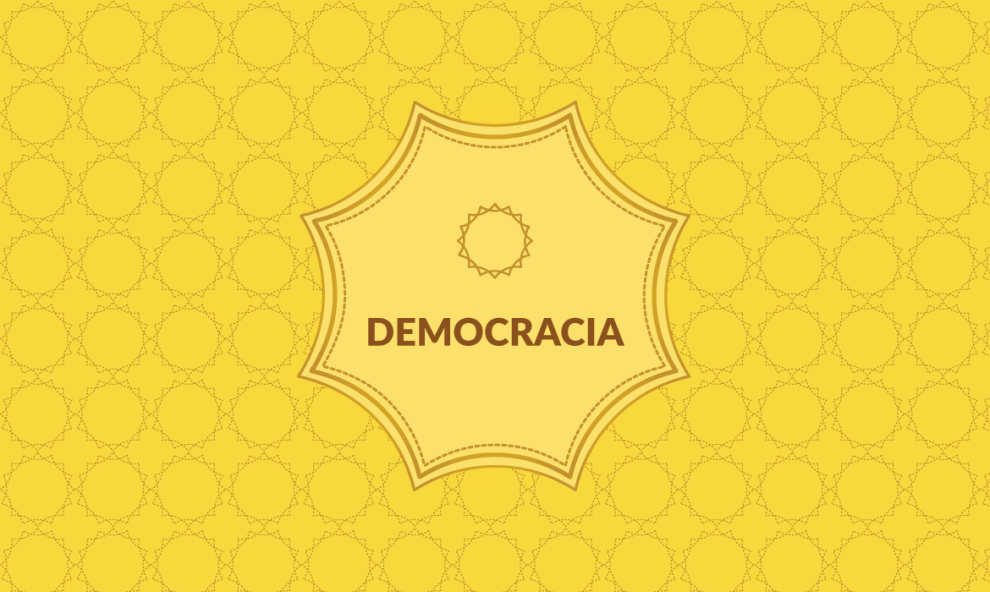The problem with bad ideas is that they spread as if they were good but, when those who promoted them become aware of their error, there is no alternative other than simulation and lies. This is the inevitable case of the 2007 electoral reforms. Now that the electoral season is formally in place and campaigns are taking off, the parties and their candidates begin to realize the enormous complexity that this legislation imposed and the practical consequences that it entails.
The electoral reform of 2007 upset the balances that had been achieved in 1996; it did not correct errors but rather altered the dynamic and the political equilibria inherent in this. From an observer’s perspective, it is easy simply to criticize or, as Will Rogers liked to say, “It’s easy to be a humorist, you have the whole government working for you“. The problem is that this is not comical. A bad idea can cause huge damage because it becomes dogma and, above all, because its promoters can’t recognize a mistake or confess to objectives or interests that are, well, unconfessable.
The electoral reform of 2007 began badly and ended worse. Instead of being posed as a part of a broader reform process, for correcting errors or fine-tuning the trajectory, there converged in the reform conflicting objectives, counterposed interests, and, more than anything, a vengeful spirit that is always a poor counselor. Worst of all was that every actor involved –the parties, many hyperactive legislators, the president, and the gallery of commentators- contributed to trashing a reform that could and should have advanced democratic processes.
Some wanted the reform to attack the president and his negative campaign strategy in 2006. All wanted to punish Fox. Other believed that, by conceding to all his criticisms, it would be possible to incorporate López-Obrador into the institutional thoroughfare. Some wanted revenge on the business community, above all for the advertisements that it sponsored. Still others believe that we dwell in Switzerland and that all that’s required for having a civilized polis is to put it into law.
While it is true that all legislations in the world, even the most controversial, end up being the product of a negotiation process (or, as Bismarck said, it’s better not to see the process of making laws or sausages because it’s the same), in the 2007 reform, the basest of passions won out and the result, inexorably, is hogwash. It’s enough to observe the way that parties and candidates attempt to adapt to these rules to prove this.
The least that can be said of the current electoral law is that it makes simulation and the lie obligatory (that’s the word). There are in particular two themes that consecrate it thus: one is that of money, and the other, that of propaganda. In contrast with other issues, money not moving by check moves in cash. I have not the least doubt that the luggage industry will be the big winner next year: it will be nauseating to observe an apparently altruistic idea become a simple and vulgar mechanism of cash-on-the-barrel pay-outs. Worse, the incentive for money laundering is infinite. With respect to propaganda and publicity, the candidates will have no option other than to procure indirect mechanisms (that is, means that do not directly involve them) to differentiate some from others. I understand the rationale of rejecting negative campaigns, but the restrictions that the law has imposed are so extreme and so absurd (and involve so many players, including the media) that the candidates will have no other alternative than to seek unsaintly ways to promote themselves, to criticize their adversaries, and to attempt to emerge without breaking the law but, nonetheless, achieving exactly what the law supposedly impedes. Another novel métier will be that of contortionism.
If the law obliges the candidates and parties to violate its spirit at all times, the law is denying every elemental right to the citizens. On following the spirit of the law, the citizen will have no way of knowing the candidates other than marginally and superficially; he/she will have insufficient knowledge for making an informed decision and will not be privy to what is the essence of democracy: a serious and responsible debate in which candidates put it on the line before the electorate. In just one night in 1994, one candidate grew and another collapsed as a consequence of debating. The citizenry became better informed and democracy advanced. That is impossible at present.
What we have today, what the law in force permits us to have, is cardboard-stiff monologues in which a candidate cannot even refer to what the other mentioned in an prior intervention; contests based on simulation where nothing is as it seems; and an interminable series of lies that become the baseline of who will govern us in upcoming years. In other words, the law rejects the notion that campaigns are a means to inform, to form opinion, and to convince the electorate. The law promotes a great Potemkin simulacrum in which nothing is real, everything is sham.
The law was in good measure a product of the unnerving atmosphere that produced the López-Obrador candidacy, the outrageous desafuero circus (the attempt to impede López Obrador from running), and the bitter campaign of 2006. However, what may be criticized about our legislators is not their concern for responding to issues and grievances that did legitimately exist, but rather their pretention in inventing a non-existent country deriving from their biases, all of these encrusted in the law. What they achieved was a greater polarization, but above all an uncontrollable incentive toward simulation and to clearly illegal behaviors. Worse yet, the spirit of the law emboldened an entire generation of politicians who, in recent times, think it natural to attempt to penalize freedom of expression.
Beyond these costs there remain the perverse incentives that the law tosses into the mix. We are teaching children that it is imperative to violate the law in order to become elected; to the citizens we are saying that democracy is a politicians’, not a citizens’, affair; and we tell the contenders to do what they want or need to do to win but to do it “extramurally”. Such as bribes and corruption. That’s the legacy left to us by the law of 2007.
The sole commendable aspect of electoral legislation is the implicit aspiration of achieving an amiable and civilized political system. However, no matter how ridiculous our legislators’ commercials are, approval of a law does not modify the reality, at least not in Mexico. A civilized country is constructed every day in daily practice and in the institutional behavior of its actors, something in which our politicians lie far from excelling.
Bad ideas






Comments